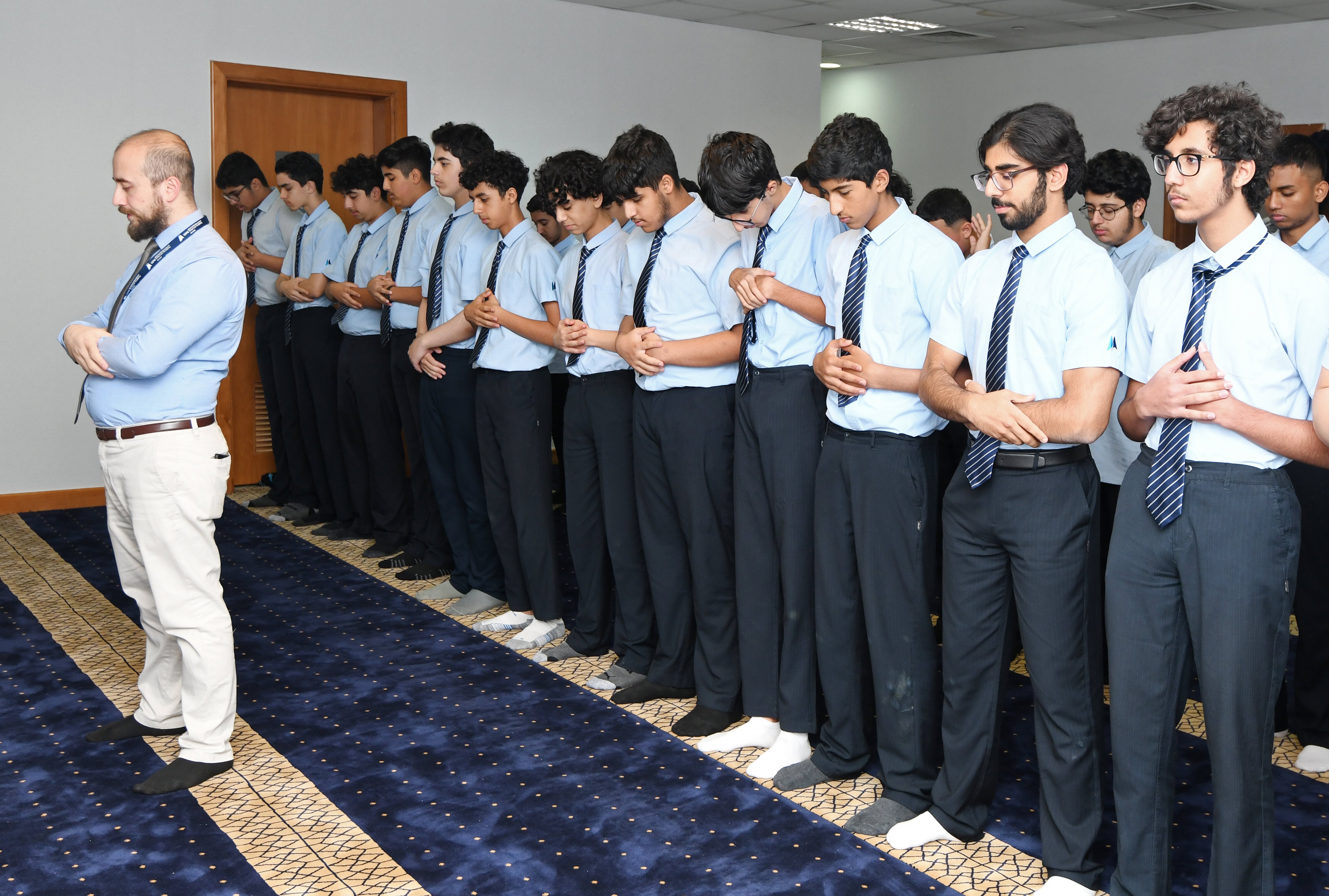Islamic Studies are vital to the education of Muslim generations. They help children learn the fundamental beliefs and principles of their religion. They also contribute to their moral upbringing and strengthen the bonds of love and cooperation among them.
What is Islamic Education? In the UAE, it is one of the core subjects in the curriculum of public and private schools.
In this guide, we'll give you a brief overview of Islamic studies according to the UAE's Ministry of Education and address a few questions parents typically raise about the topic.

Overview of Islamic Education at UAE Schools
Islam is the official religion of the UAE, and Islamic Sharia is the main source of the legislation. As such, the Ministry of Education (MoE) has made Islamic studies a compulsory subject in UAE schools for Muslim students, both Arab and non-Arab, from Year 2/Grade 1 to the end of Year 13/Grade 12.
However, non-Muslim students are exempt.
All private schools in the UAE, regardless of their curriculum — British, American, International Baccalaureate (IB) and Indian — feature Islamic studies subjects for Muslim students.
If you're a Muslim parent, this means you won't have to limit your choice to Islamic-education schools when your children start their academic journey.
Questions and Answers about Islamic Education in UAE Schools
Below are some of the questions parents often ask about Islamic Education in UAE schools.
Q: What is the framework of the Islamic studies curriculum in UAE schools?
A: The MoE's general standards for Islamic education include the following six fields of study for each grade level:
- Divine revelation
- Islamic creed
- Values and morals of Islam
- Islam rulings and purposes
- Syrah (biography of the Prophet Muhammad PBUH) and characters
- Identity and issues of the age
The Islamic studies framework breaks down each of those fields into several aspects and divides every aspect into a set of standards. Each standard has specific learning outcomes that clearly outline what the student is expected to learn.
To better understand this, let's take a look at Grade 2's Islamic studies curriculum:
Field: Divine revelation
Aspects: In the divine revelation field, the aspects are the Holy Quran and its sciences, and Hadith and its sciences.
Standards: For the Holy Quran and its sciences aspect, the student must be able to recite Chapter of "Amma" and show a general understanding of its Surahs meanings and rules.
Learning outcome: Every standard has clear learning outcomes. In this example, Grade 2 students should be able to learn the total meaning of the Surahs included in the curriculum and apply the rules of recitation (humbleness and listening).
Q: Does the student's nationality impact the frequency of Islamic studies lessons?
A: Yes. According to the Knowledge and Human Development Authority (KHDA), a student's nationality can influence the frequency of Islamic Studies lessons.
For Arab Muslim students (those who are registered in the school or KHDA under an Arab passport and as Muslims), the lesson frequency is as follows:
- Three lessons per week for Years 2 to 4/Grades 1 to 3
- Two lessons per week for Years 5 to 13/Grades 4 to 12
Alternatively, Islamic studies lessons are twice per week across all grade levels for non-Arab Muslim students (those who are registered in the school or KHDA under other nationalities and are Muslims).
Q: Does introducing Islamic studies into the school curriculum vary depending on the school?
A: Yes. Islamic education in the UAE is mandatory for all Muslim students from the age of six and continues for 12 years of their schooling. For those enrolled in British curriculum schools in Dubai, this means they can start Islamic education in the second year. However, for students in American and Emirati curriculum schools, it begins from grade one.
Additionally, while not mandatory, some schools choose to offer Islamic studies instruction in the early years.
Q: Are there guidelines in UAE schools regarding Islamic studies instruction?
A: Yes. Schools in the UAE must follow the curriculum standards set forth by MoE, including using MoE-prescribed textbooks. This ensures a standardised approach to the instruction of Islamic Studies across all schools.

How Do GEMS Schools Support Islamic Education?
GEMS schools in the UAE build an environment that fosters spiritual growth and helps students develop a strong sense of identity anchored in their faith.
In the early years, our curriculum is designed to speak to various facets of children's growth. It integrates elements such as short Surahs, Hadeeth, Duaa, and Nasheeds to broaden their understanding of Islam.
It also focuses on nurturing personal attitudes, creating environmental consciousness and honing social skills.
As children progress, our curriculum becomes more comprehensive and practical. It includes field trips, Islamic academy participation, and extracurricular activities to improve Qur'an recitation, Seerah, Aqeedah and Ibadah.
We also encourage children to apply their Islamic knowledge to daily life. This entails learning the etiquette of entering a Mosque and conducting themselves during prayer times.
Finally, we celebrate all Islamic occasions in our schools and actively involve students and parents. Some of these include Ramadan iftar, Eid assembly, prayer week, and numerous other events organised with our RDS community.
Connect with us today to learn more about our Islamic studies education and how we can empower your child's spiritual journey.
More Popular Blogs
-
Read More
-
Can you do IB after CBSE? Here are important things you need to know if you plan to transfer your child from a CBSE to an IB curriculum school.Read More
-
What are the benefits of taking the IB Diploma Programme? Learn about what the IB diploma is here and how it can boost your university applications.Read More








